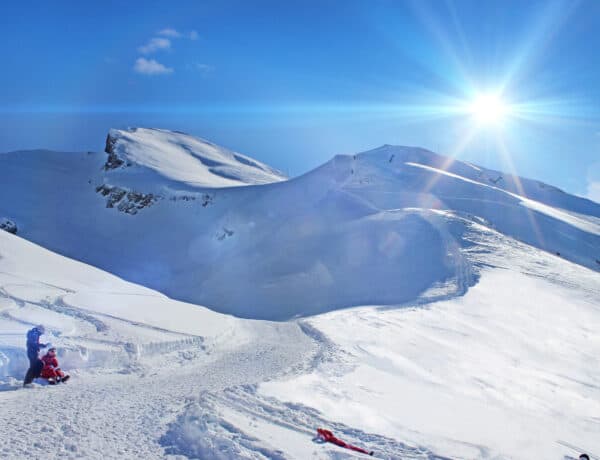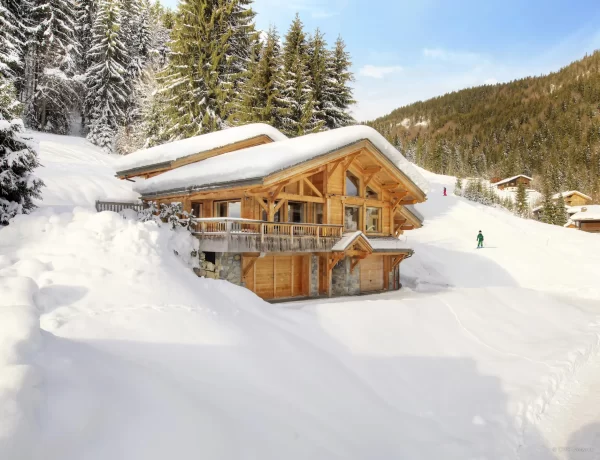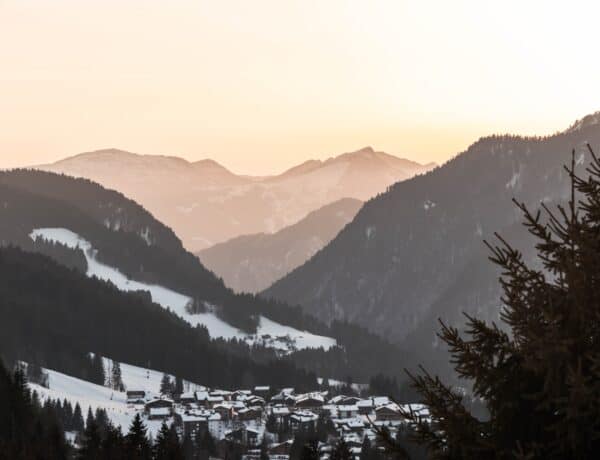Sustainable travel is a hot topic at the moment, with many of us becoming increasingly aware of the effect our travel habits have on the planet. In fact, according to Luggage Hero, 87% of travellers want to travel more sustainably.
But what about holidays in the French Alps? Alpine holidays not only revolve around nature but are heavily reliant on it. Whether you’re skiing, hiking, biking or enjoying the local lakes – respecting the environment is crucial.
So, how do we achieve this? With help from Montagne Verte, in this post, we explain how to travel more sustainably to the French Alps and what you can do whilst on your holiday to make a difference. Read on to discover some top tips…
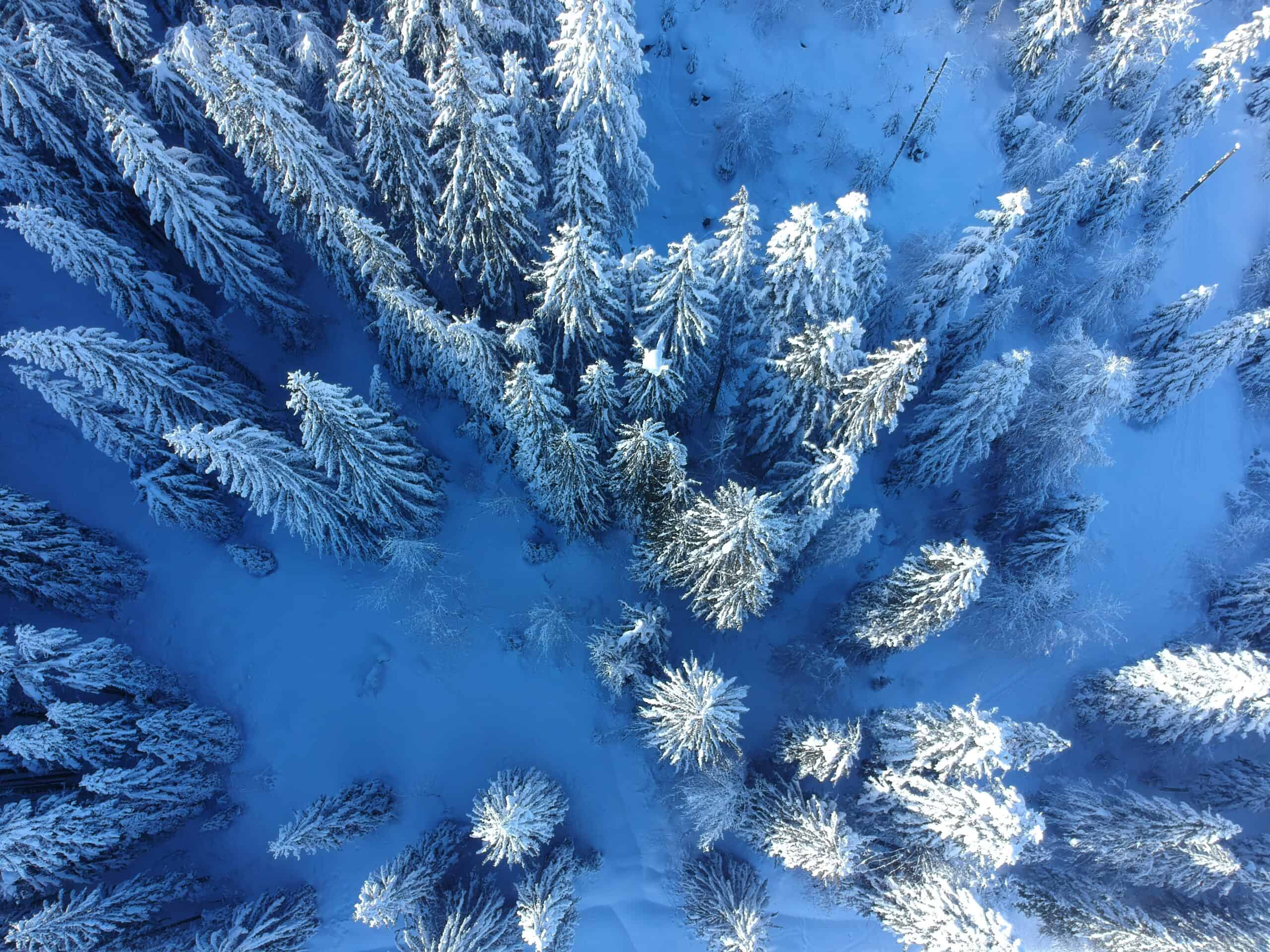
1. Pick a sustainable ski resort
Photo credit: Damien Robin
A good place to start is making sure you are choosing a ski resort that prioritises low carbon emissions. The ‘Flocon Vert’ label is an important one to look out for. You can find out a bit more about the label, plus how to select a sustainable ski resort in our handy guide.
To find out more about selecting an eco-friendly resort, we asked Montagne Verte for some wider context…
“The Flocon Vert label is indeed the reference label for resorts committed to sustainable development. There are evaluations, monitoring and an action plan for them to follow.
However, some other resorts are making various efforts to be as sustainable as possible too. When determining the sustainability of a ski resort, we need to look at how accessible they are by low-carbon transport, the reduction of energy, their mobility policy, plus their efforts to preserve the fauna and flora. The website Save Our Snow report on some of the “green resorts” worldwide.
In other countries within the Alps, you also have the Alpine Pearls network that gather resorts willing to offer more sustainable holidays.“
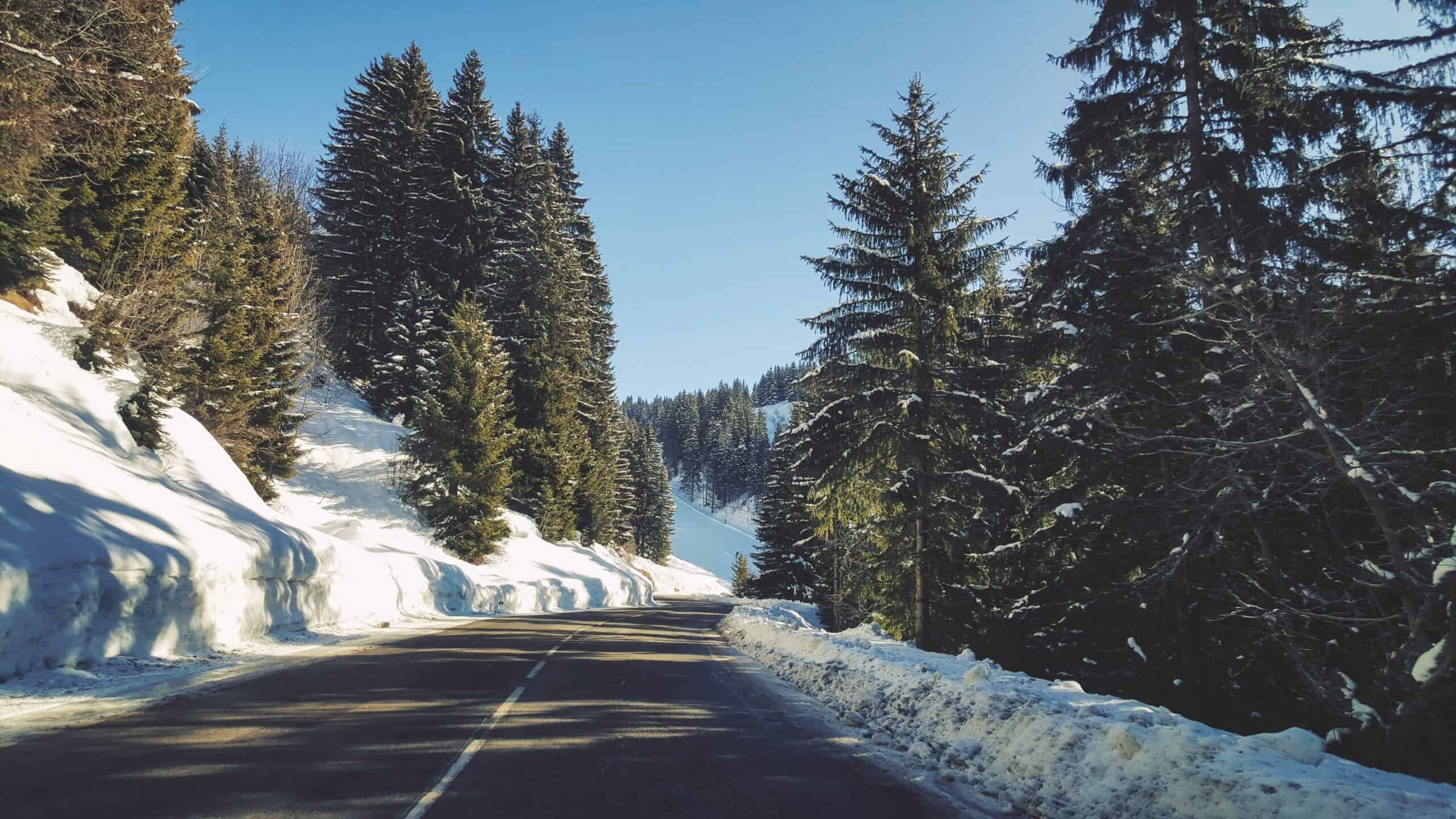
2. Drive or take the train
Photo credit: Kasya Shahovskaya
Although it’s often quicker and easier to opt for air travel, driving and taking the Eurotunnel or ferry is a much greener approach.
The Eurotunnel has now expanded to become a French-Belgian high-speed rail operator by joining forces with Thalys. This means a more extensive network, increased connectivity and a better frequency of service, as well as operating on renewable energy.
We asked Montagne Verte for some more in depth information about what the best mode of transport is for getting to the French Alps…
“You will find a very complete and informed article on our website explaining the difference between flying and taking the train, which also states the emissions from different modes of transport.
There are also good online comparators such as Eco Passenger or Mon Impact Transport (French only) which offers really precise results with the carsharing option.
There are always ways to compensate or offset flights, however it’s often considered quite controversial. Based on our aforementioned article, if you compare the carbon footprint of different modes of transport, taking the train looks like the best option.“
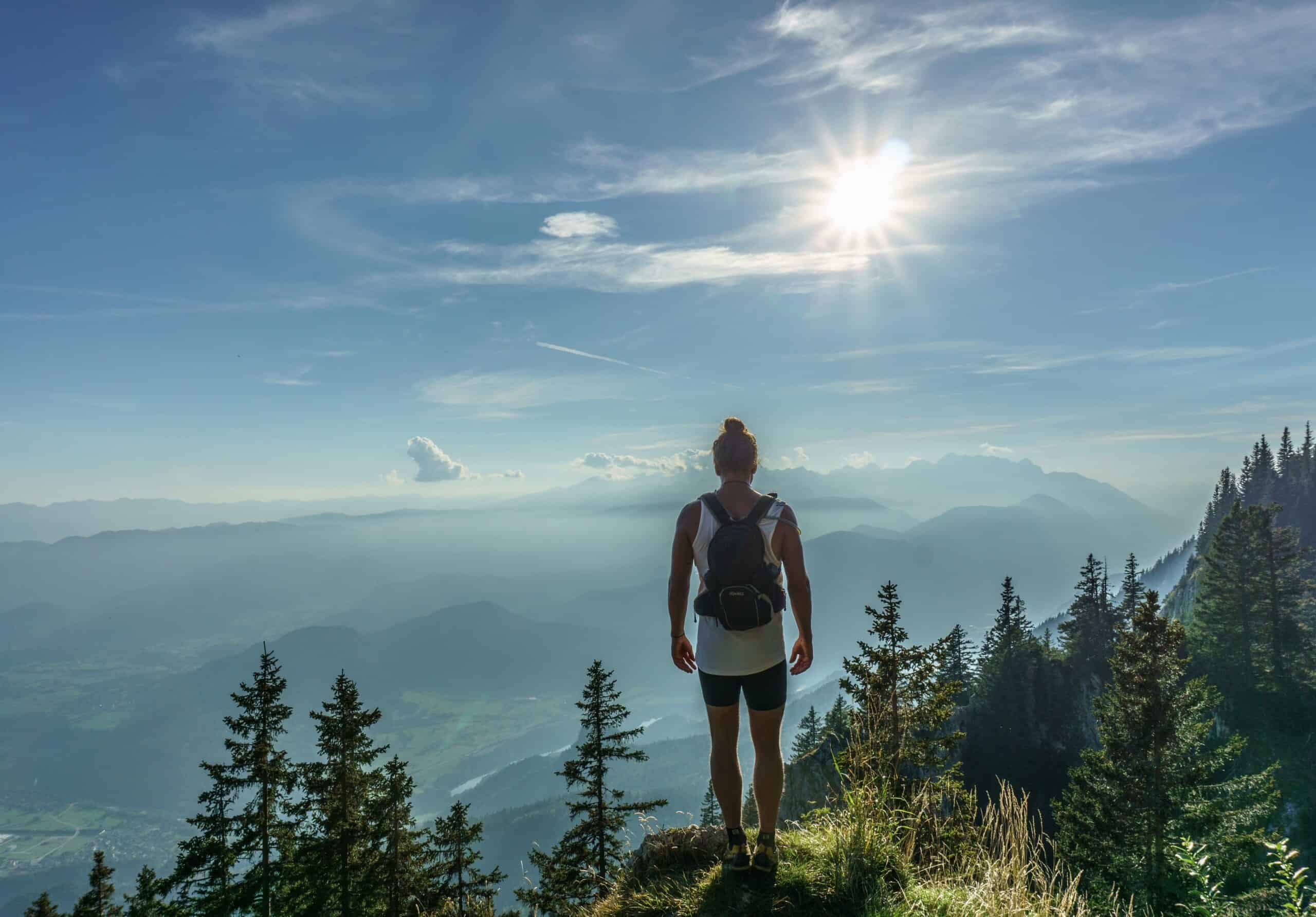
3. Opt for sustainable outdoor clothing and equipment
Photo Credit: Krivec Ales
Many clothing brands are now making increased efforts to create durable, ethically sourced clothing made from recycled materials.
When doing your pre-holiday shopping, try to consider the environmental effect of the fashion industry and aim to purchase your gear from sustainable brands.
Here’s Montagne Verte’s point of view on sustainable outdoor wear…
“It’s sometimes complicated to recommend one brand over the other, but it’s vital to ensure your clothes and equipment last as long as possible.
Buying second hand or renting is also a great option. Montagne Verte is part of a great collective set up by One Tree at a Time in Savoie, who run tutorials on how to make basic repairs and upcycle old clothing.
Re-Action Collective are another great organisation who are working towards a greener outdoor industry by repurposing and reallocating products.”
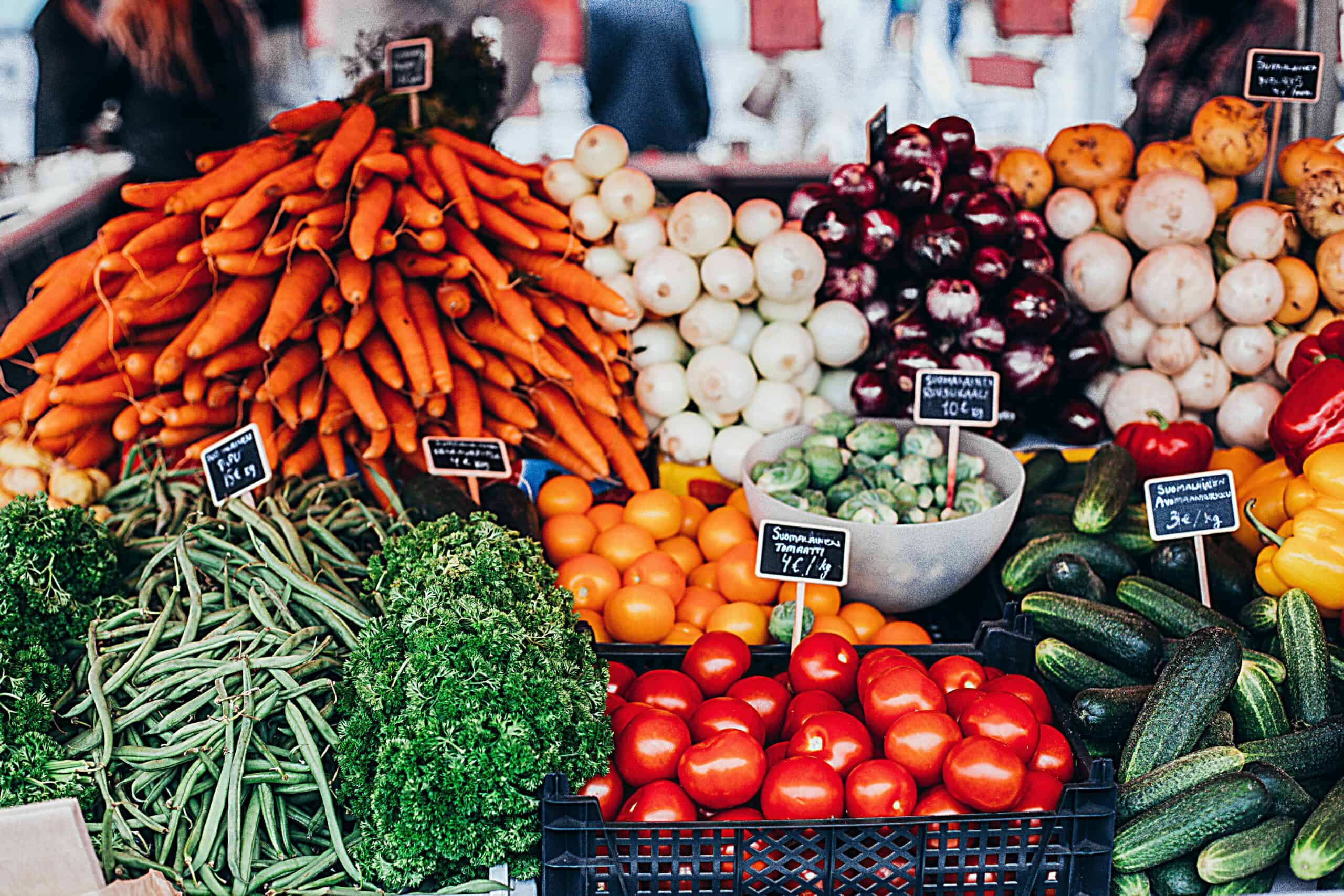
4. Shop locally and remember your reusable bags!
Photo Credit: Daria Shevtsova
French Alps food culture has always been, and still is, very centred around local produce. In recent years, there has also been a significant rise in the number of ‘Bio’ shops which specialise in organic products.
We asked Montagne Verte for their take on local produce and sustainable eating in the French Alps…
“Fortunately, there are more and more bio shops within all alpine villages and resorts. Usually, like in Morzine, you will find a local market where you can purchase many local products.
Vegan products are sometimes harder to find because of the strong cheese culture in the Alps! However, France is beginning to follow the global trend of recent years, where vegan options are now much more commonly found in shops and restaurants.”
Alternatively, if you’re really keen to connect with nature and source food straight from the ground, Montagne Verte have a handy guide on how to forage which you can read here.
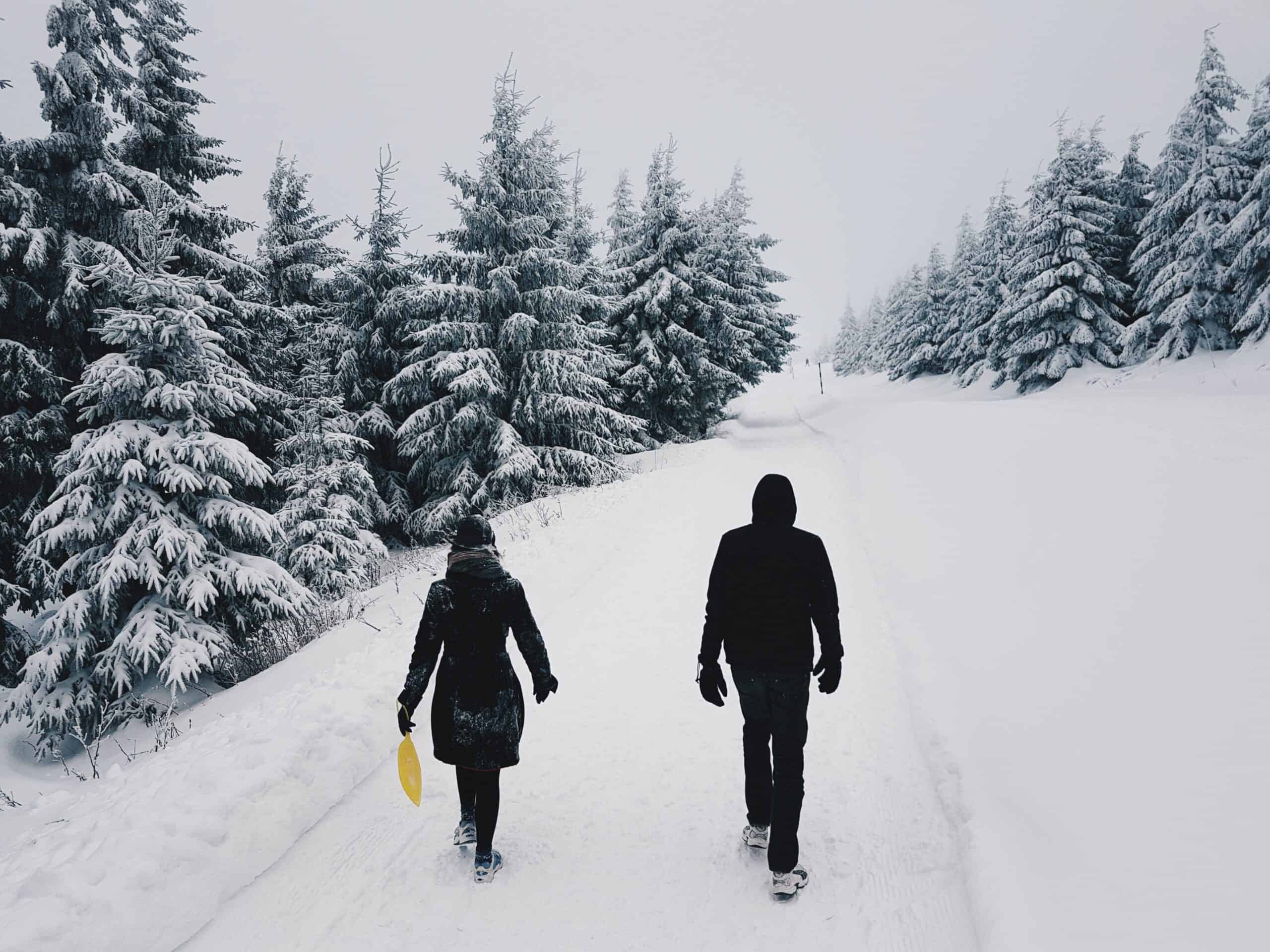
5. Walk or take the ski bus around resort
Photo credit: Daniel Frese
An eco-conscious approach to transport doesn’t stop once you get to your chosen destination! Being mindful of how you get around the resort is key. Montagne Verte summarise this approach below…
“The most sustainable way is to avoid using a car (which is not always easy) by walking, cycling when possible or taking the ski bus. A lot of resorts have set up shuttles around resorts.“
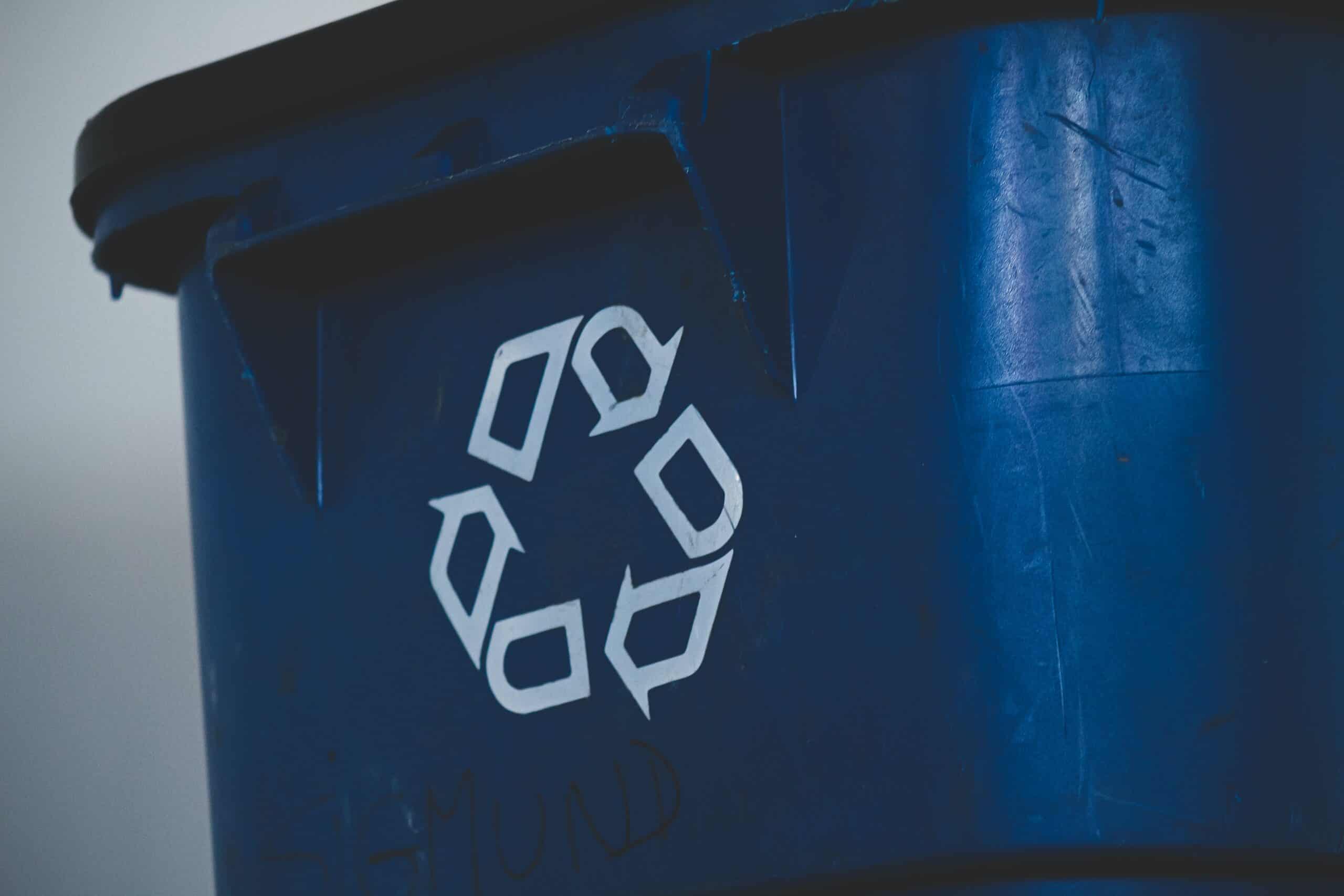
6. Adhere to local waste management guidelines
Photo credit: Sigmund Al
Recycling is a basic step we can all take to play our part – and that shouldn’t be any different when you go on holiday!
Every town in the French Alps has recycling facilities, however there are no specific national guidelines or tips due to there being very different systems in each location.
We’d advise asking your property manager at the accommodation you are staying in about the local regulations when you arrive.
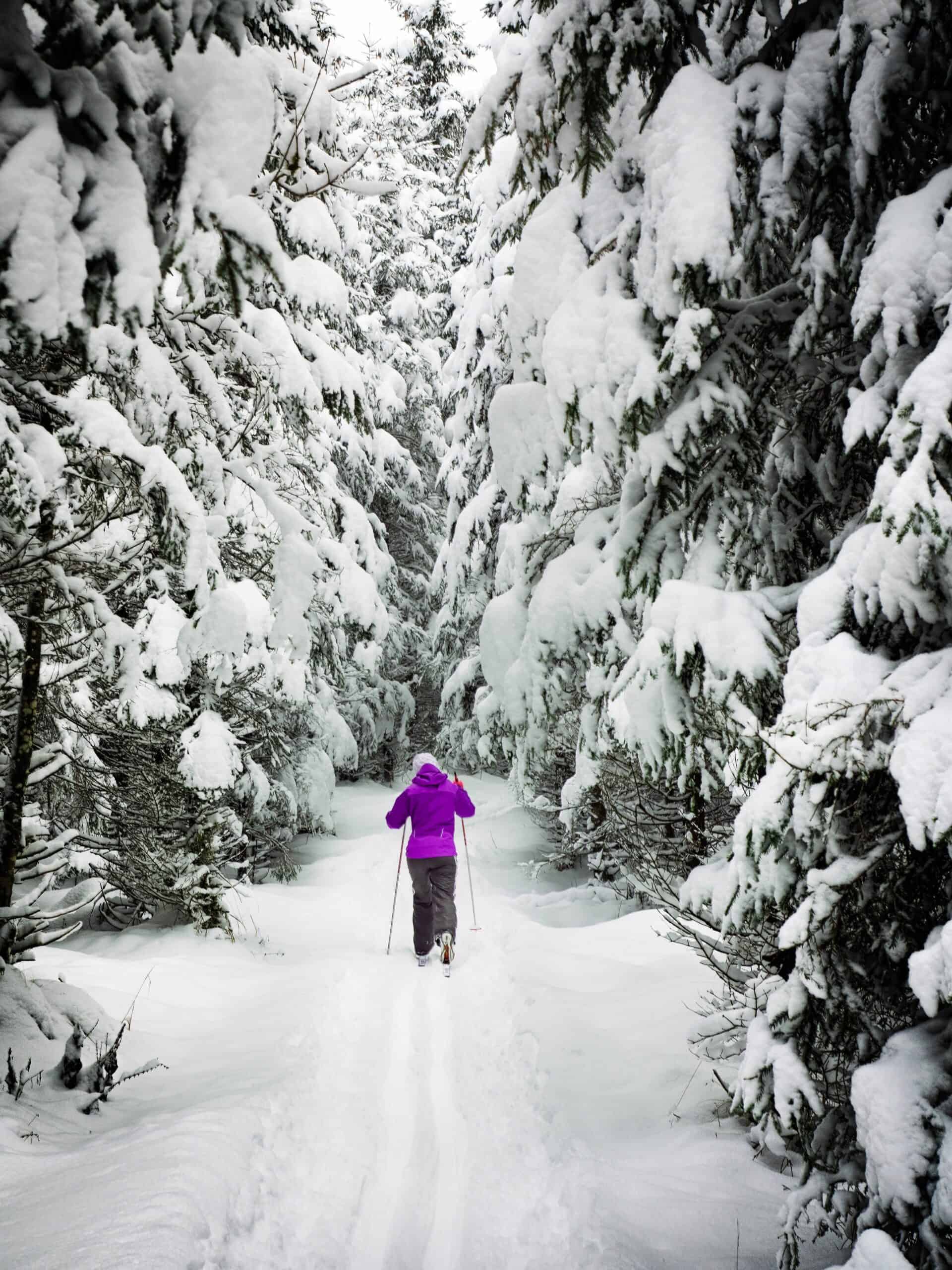
7. Approach activities with an eco-conscious mindset
Photo credit: Simon Berger
It’s no secret that the French Alps are a hot spot for outdoor activities. But, how can we approach them with an eco-conscious mindset?
“It’s always difficult to measure what classes as an eco-friendly activity and what the exact impact is. But, in the mountains, there are plenty of activities that allow you to enjoy and reconnect with nature such as lake swimming, hiking, a walk to discover flora and fauna or simply taking time to enjoy the surroundings.
It’s not the activity itself that can be eco-friendly, but how you approach it. For example, snow shoeing in winter is amazing, reconnects you with wildlife and nature and makes you see the mountain differently. However, it must be practiced with respect, and you need to avoid walking in certain protected areas where you might disturb the wildlife.
For sustainable skiing, we have a small guide on how to be a “green rider”, which is about the impact of your equipment and your behaviour (especially off-piste), avoiding quiet zones, staying on tracks (especially in the forest) and how to generally remain discreet.”
Asking your local Tourist Office for professionally guided activities can be a great way to ensure you’re approaching activities safely and responsibly.
If you want to find out more about Montagne Verte, head over to their website to discover their wealth of resources available to help you be a more sustainable traveller.
